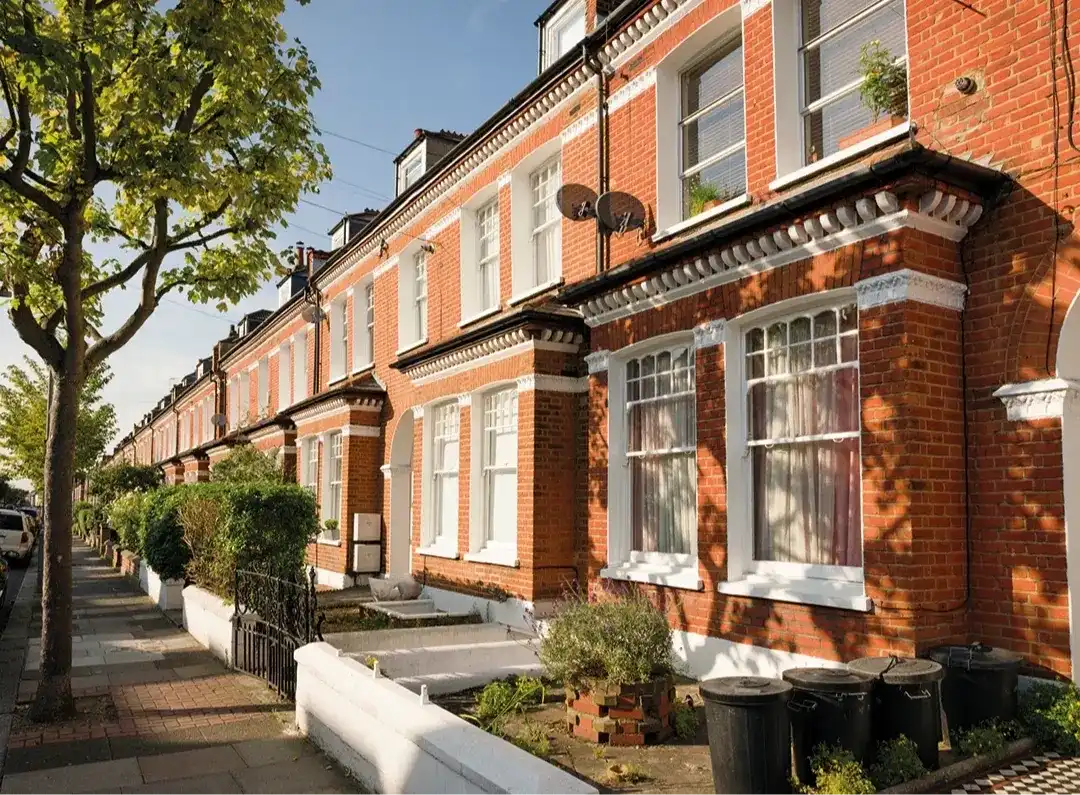We have all those property survey answers and more…
In the UK, 42% of homeowners need unexpected work done to their property within 12 months of moving in.
We know that, on average, people spend around £5,000 putting things right in their home within the first 12 months. If that’s not an expense you’re expecting, it can be a blow to your cashflow.
Then there are all the stories you read about in the press: those people who save for years to buy their dream property, only for that dream to turn into a nightmare once the sale goes through.
As the property survey experts, we know exactly what the problem is in most of these cases: purchasers relied solely on their lenders valuation to highlight potential problems and did not instruct an independent survey through a solicitor or chartered surveyor.
Jump straight to the not-so-great eight: those pesky issues that can be identified by a house survey!
- Damp
- Roof Issues
- Subsidence
- Dry Rot
- Woodworm Infestation
- Defective Central Heating
- Defective Electrics / Wiring
- Asbestos
We cannot stress enough that a valuation is not a survey: it is done for the lender’s benefit, not the purchaser’s and is solely to assess the value of the property.
Instruct us today to carry out your RICs Survey.
Why do I need a property survey when buying a house?
Your lender’s survey is for them and only serves to protect their investment.
You need a survey to help identify uninsurable risks – and potentially save you thousands of pounds.
Before you consider buying any property you should always instruct an independent survey. We provide a range of services to suit all budgets, including:
Level 1 RICS Home condition report
Level 2 RICS HomeBuyer report
Level 3 RICS Building survey
If you're not sure which survey to choose, ask us! We can explain the differences and help you assess which one would be applicable for you and your potential property.
As we’ve already mentioned, the £5,000 that a lot of people spend on their home building or property in the first 12 months is just the tip of the iceberg. Some people spend a lot more!
Knowing about the need for that work in advance can influence your buying decision, helping you to decide whether you actually want a project or not. And, more crucially, if you still want to proceed with the sale, it could have helped you negotiate a better price.
Instructing a property survey can save heartache – and costs!
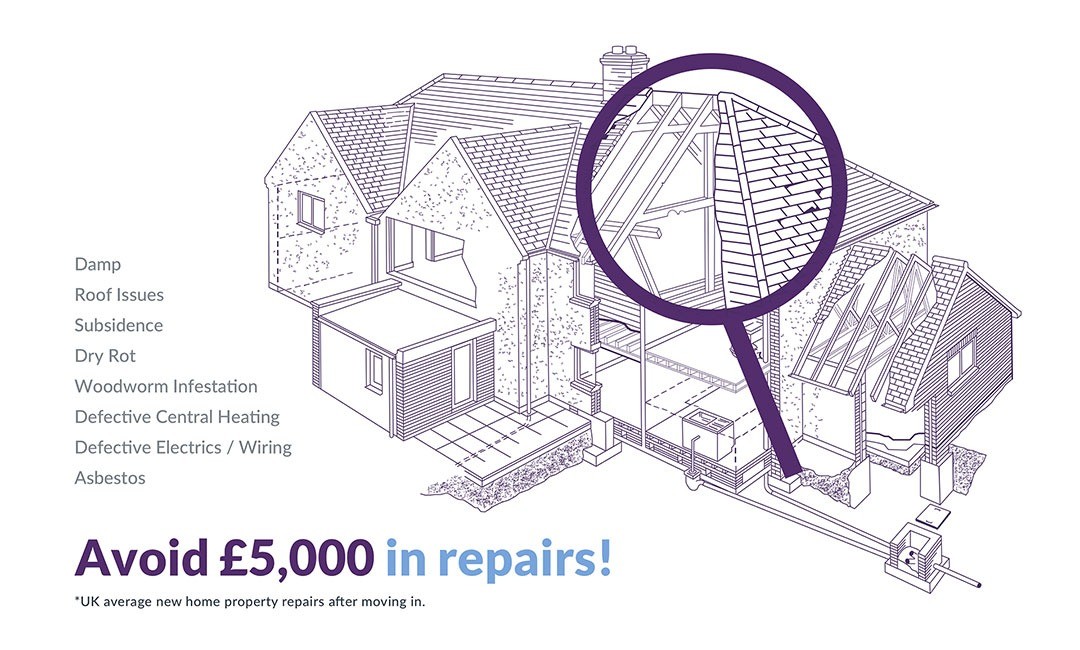
Do I need a structural survey before buying a house?
A better question to ask is: can you afford not to get a structural survey?
In today’s climate, we’re all a lot more cost conscious. But while a small fee in terms of the price of a survey might seem like an unnecessary expense, not paying for a survey could cost £££thousands.
With that in mind, the cost of a survey could be a really good investment: knowing what you’re dealing with early in the buying process can save you time and trouble further down the line.
Home and building surveys can uncover major problems as well as more discrete damage to homes, buildings and properties. And that is invaluable.
Buying a new home, building or property?
Do you need a survey when buying a house and how much will a survey cost?
As they say, knowledge is power and being forewarned means being forearmed!
A home, building and property survey will protect you and your investment.
Your Question: Why do I need a property survey when buying a house?
In short: if there are any problems, you can use the information in the survey to renegotiate the purchase price or insist the seller gets the work sorted out before you proceed with the purchase.
It doesn't have to mean that you'll drop out of the sale, you can use it to your advantage - as long as it's sensible to do so.
It's always better to be informed and if you want to avoid the pitfalls relating to buying a property, instructing a RICS (Royal Institute of Chartered Surveyors) survey is a must.
Home purchase survey: the costs!
The price for a survey depends upon a few factors.
These are usually the type of property and the type of survey you need.
You can get an estimate and all the information immediately by choosing your home property survey here.
If you’ve already recently bought your home but didn’t get a survey, it’s not too late.
What if you’re not moving but are concerned about your property?
You can instruct a home, building or property survey at any time.
If you’ve owned your home, building or property for any period of time, don’t have a recent survey or didn’t instruct a survey during the buying process, hiring a surveyor now to undertake a property or home survey for you would be worth your while.
Especially if you have structural concerns about the building.
Whether you’re thinking about selling your home or have been there a while and are wondering about the feasibility of staying put, we can help you decide.
A good RICS survey will help you identify upcoming maintenance needs and potential costs.
You may have some concerns with the roof, damp, electrics or plumbing for example, and these will impact upon your decision to either stay or sell?
These kinds of issues will also influence the sale price: would you want to rectify any issues to maximise the value of the property, or be prepared for negotiations to achieve the most realistic and valuable return on your investment?
A RICS survey is ideal as you get a professional opinion from our honest approachable experts.
A Condition Report is a good place to start.
This report is what we would call a traffic light survey. It provides a succinct overview of a residential property and focuses purely on the condition of the property by giving ratings to the different parts of the building and flagging up any areas that need attention.
You can then make an informed decision based on the outcome of the survey.

Selling? SellSmart.
The property market is changing! New Trading Standards regulations mean that sellers must provide buyers with information about their house.
With our new SellSmarter services, you can go one step further and speed up your sale!
A typical property sale can take more than 5 months. We can help you be exchange ready in just 4 weeks*
The not-so-great eight: the eight things you need to know when buying a house.
Here they are – the 8 main reasons why our honest approachable experts believe you need a home, property or building survey.
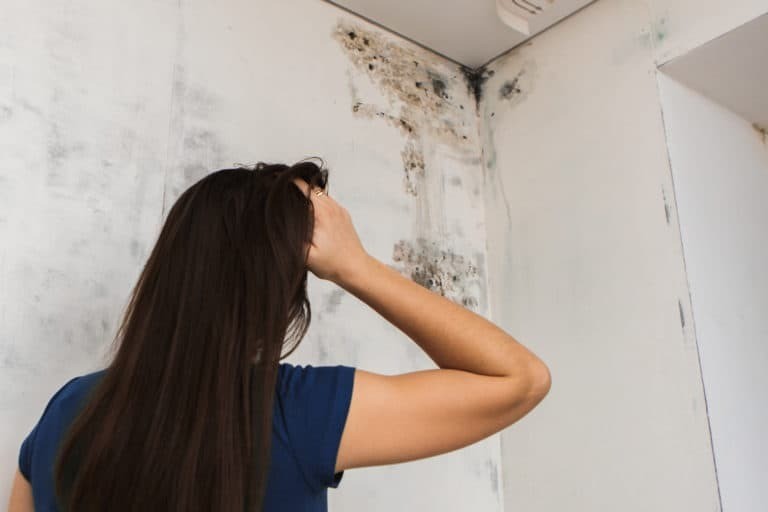
1. Damp
This is always, always, always No.1 of the top 3 problems that people experience when buying a property. Plus - there are a few different kinds of damp to be aware of.
Rising damp, dreaded by many homebuyers, is potentially the most expensive to sort out. It’s caused by water coming up from ground level, often through a faulty or missing damp–proof course in the wall.
This can lead to wet-rot in floorboards, meaning extra costs on top of the damp-proof course repairs.
Other causes of damp include penetrating damp, where water is getting in from outside via a leak in the roof, walls or windows, and condensation, where there’s not enough ventilation in the property.
"Our 250+ year old house was full of damp. We were so green we bought it with just a lenders property valuation. Get a full structural survey done on any older property. It cost us a fortune to put right and we still get rising damp in one wall, even though the whole place was damp-proofed and we had new skin put on outside walls."
Instructing a RICS survey will pick up any damp problems. If your surveyor finds damp, it's important to investigate the cause and assess how much it will cost to put right.
This can range from thousands of pounds for excavation and a new damp-proof course, to something as simple and inexpensive as buying or renting a dehumidifier.
Being armed with the right information is key to successful negotiations. You can choose whether to negotiate with the seller about covering the cost of repairs or reducing the price of the property.
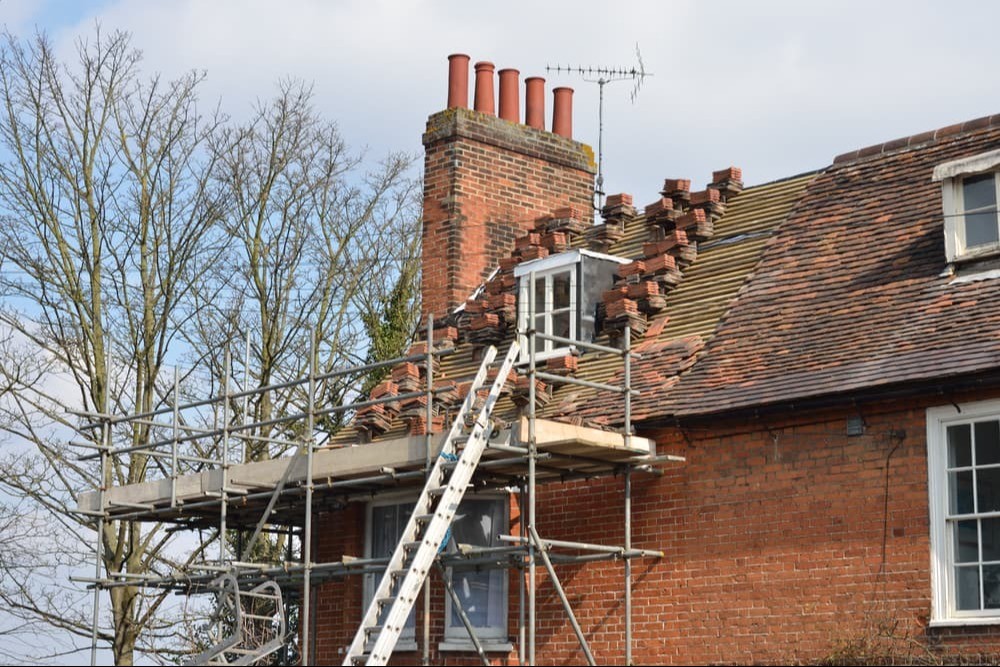
2. Roof Issues
Most roof problems stem from damp caused by rainwater constantly leaking in through damaged roof tiles or chimney structures, or from rotten roof due to dry rot or woodworm damage.
This generally occurs in older properties but can also be an issue in newer buildings where extensions or conversions have not been carried out to building regulation standards.
As a rule of thumb: the older the property, the more likely it is to have possible roof problems e.g. bowed roof structure, rotten joists, unless it is obvious that a new roof has been added.
Replacing a whole roof is an expensive job, but never forget: the roof protects the whole house so it is vital it's in good condition.
“We moved just over a year ago into a house that needed a lot of work. We knew that was the case and expected to have to do some fairly major jobs. What we didn't expect was to have to replace the entire roof. But when we had a big storm in the summer, water poured into our newly redecorated bedroom and ruined the place. We got several roofing companies in and they all agreed it needed replacing entirely, which was not cheap.”
Commissioning a chartered surveyor to do a survey will highlight problems like this, and you can use the information to decide whether you wish to negotiate with the seller about covering the cost of repairs to the roof, or to negotiate the price of the property that's being sold.
Being informed is key.
Book your property survey today
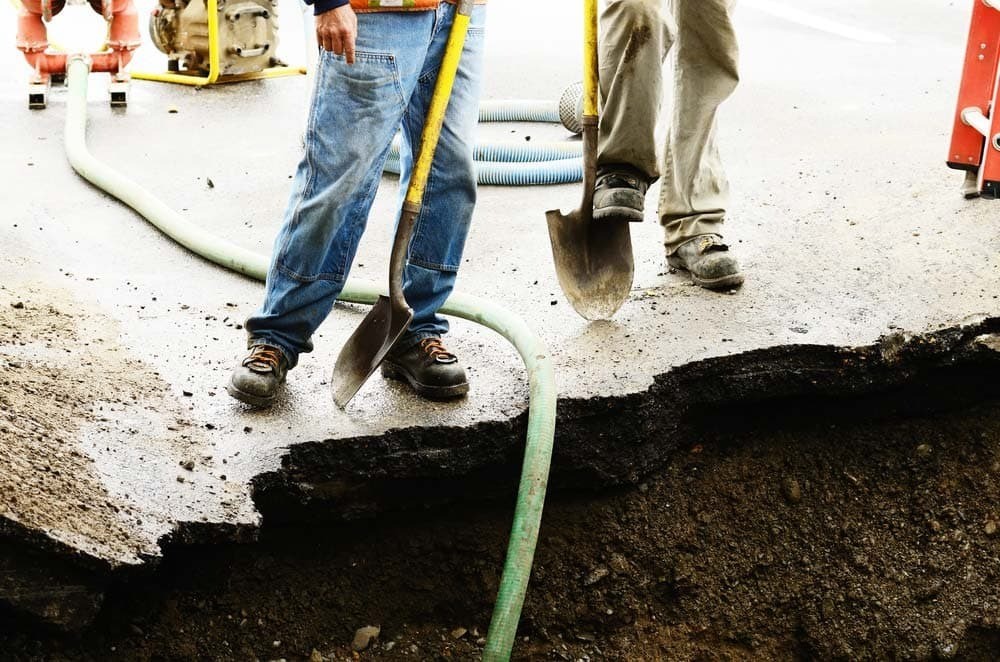
3. Subsidence
Subsidence happens when the ground underneath a property moves causing instability.
It typically happens in an uneven way, causing cracks in the structure of the property i.e. the brick walls.
Any cracks in walls should be investigated by a surveyor as it may not just be general subsidence causing movement but something far bigger like a sinkhole. We've all seen the footage of houses and vehicles disappearing down a huge hole in the ground, that's the last thing you'd want to happen to your new property!
Although it sounds fairly dangerous, subsidence can be fixed through underpinning, however, this can be very expensive.
If you’re the buyer, your main issue is that, if a property has subsidence problems, even if it's been underpinned, you're likely to be charged a larger insurance premium.
“We bought a £500,000 barn conversion with an annexe and separate block of B&B outbuildings on the Somerset levels. We naively relied solely on our lender's property valuation and did not commission our own building survey.
It's been a complete nightmare. On our first night in the property, we encountered the problem of kitchen drawers sliding open by themselves. We have to pile books on one side of our beds and couch to make them level and our 5-year-old son can't play with marbles or balls or anything on wheels because they just roll away!
We instructed a chartered surveyor to do a full building survey to give us some idea of the price of fixing the problem. Their report showed a long list of major problems, the main one being subsidence in all parts of the property. This has also led to a bowed roof structure, external cracking in walls and bricks and walls being out of plumb, to name a few. In other words, the 'house from hell' with a put-right price tag of approximately £165,000.”
An Arnold & Baldwin RICS Building survey will ensure you have a full understanding of the subsidence problem and any related issues. It will pick up on any repairs that may have already been done and, if you then decide to go ahead with the purchase, you have the option of negotiating with the seller on the price of the property to see if you can offset any extra insurance costs.
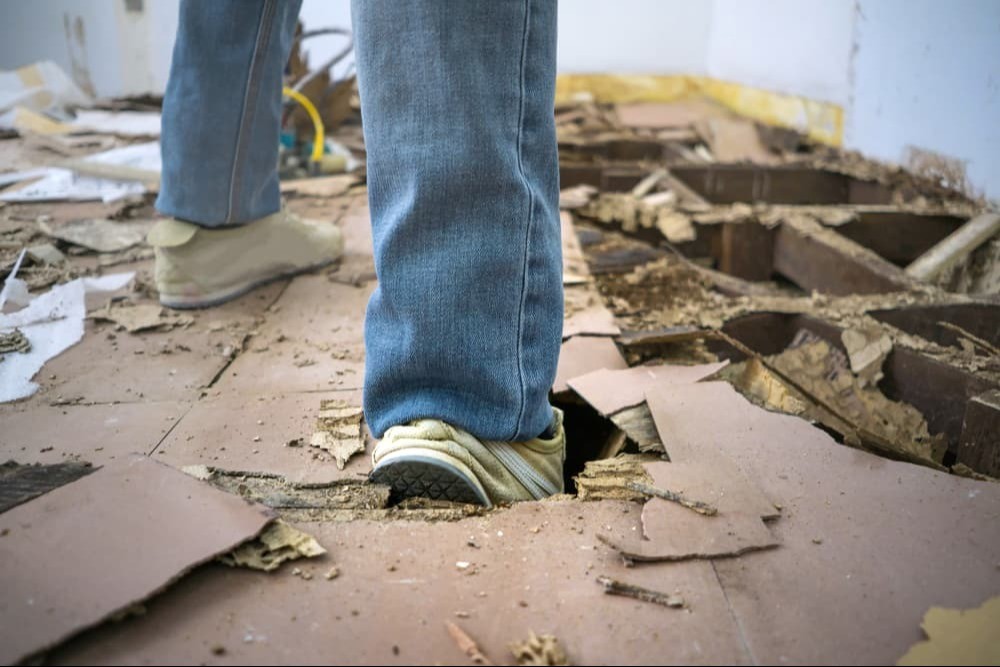
4. Dry Rot
Dry rot is a type of fungus that can weaken the timber within a property, including floor joists, window frames and stairs.
It can spread rapidly but it only sets in if conditions are damp, which could mean anything from a leaky pipe to a defective roof.
If you’ve got dry rot, it means there’s work to be done eliminating the problem and repairing any damage.
Commissioning a RICS survey will pick up on issues like this. Once you’ve confirmed the extent of the problem with your surveyor, you need to think carefully about your options. You could negotiate with your seller and ask them to cover the cost of repairs.
However, this might mean a lot of disruption and delay in moving into your home. With serious dry rot, some people choose to cut their losses and pull out of the sale – it all depends on your personal circumstances.
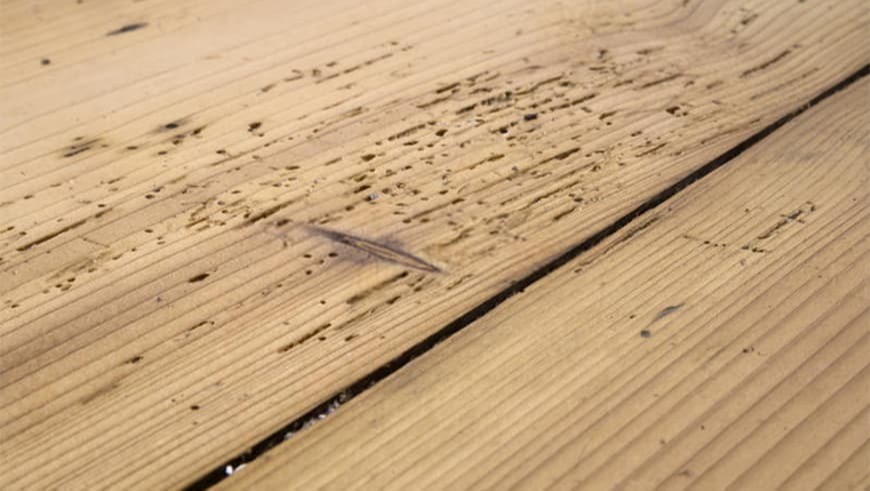
5. Woodworm Infestation
Woodworm is actually caused by beetles, not worms.
Their larvae burrow into timber, including furniture, woodwork, floorboards and joists, causing structural damage to a property.
You might see evidence of woodworm within the property if there are exposed beams. The tell–tale sign is small, rounded holes on the surface of the wood, although if woodworm affects a structure that’s out of sight, the problem might not be obvious to the untrained eye.
If woodworm is present, you might need to get a specialist in to assess the extent of the problem and to confirm the type of beetle you're dealing with. Some species of beetle can cause devastating damage to structural timbers, while others prefer softwoods and furniture. The methods and costs of treatment can vary depending on how severe the problem is.
Once again, having the correct survey will make you aware of the presence of woodworm in the property and give you possible negotiating room with the seller to pay for the cost of any repairs or lower the price of the property.
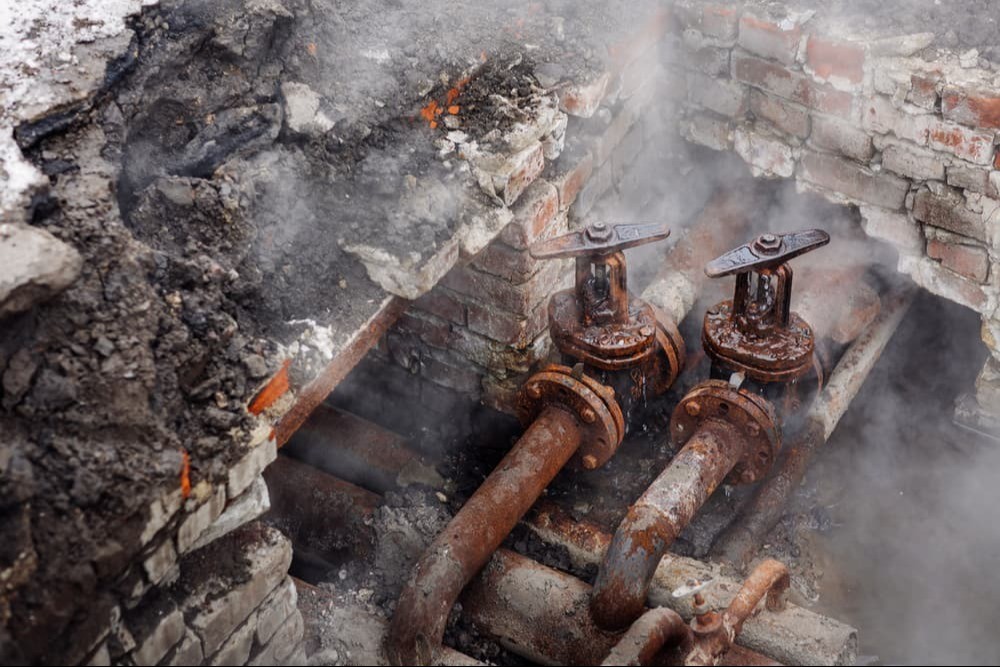
6. Defective Central Heating
The boiler not working will only require someone to come and service it, right?
Well, what if it's not just the boiler that's the problem, what if the central heating pipes are leaking at the joints, causing damp and rotten joists and wet-rot in floors.
Checking things as simple as the central heating system is vital when buying a property or you could be left with a big bill for repairs.
“We’ve spent around £35,000 already and it’s ongoing. Our mock Tudor house looked sound and seemed to be a bargain. But the dream has turned into a nightmare. The central heating pipes were leaking at the joints and had to be replaced. They had caused the downstairs floors to have wet rot and on the upper floor there was damp as well leading to a whole host of other problems too. It’s estimated that we’ll have to spend another £50,000 to £60,000 to get to a position where we’re happy and it’s structurally safe to live in, I don’t know where we are going to find the money to do that.”
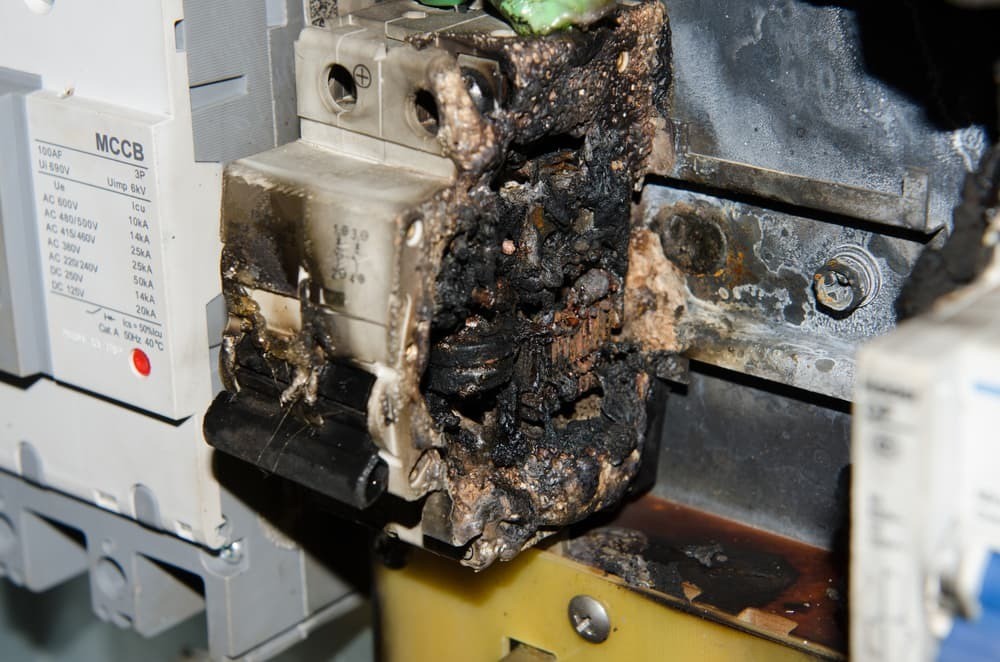
7. Defective Electrics/Wiring
Electrics and wiring, especially in old properties, need to be checked.
It can often be the case that wiring is substandard compared to today's specifications, so as well as leaving yourself open to electrical failure, you’re also exposed to fire risks.
If the electrics are deemed to be dangerous, then the whole property may need to be re-wired - leading to substantial extra cost.
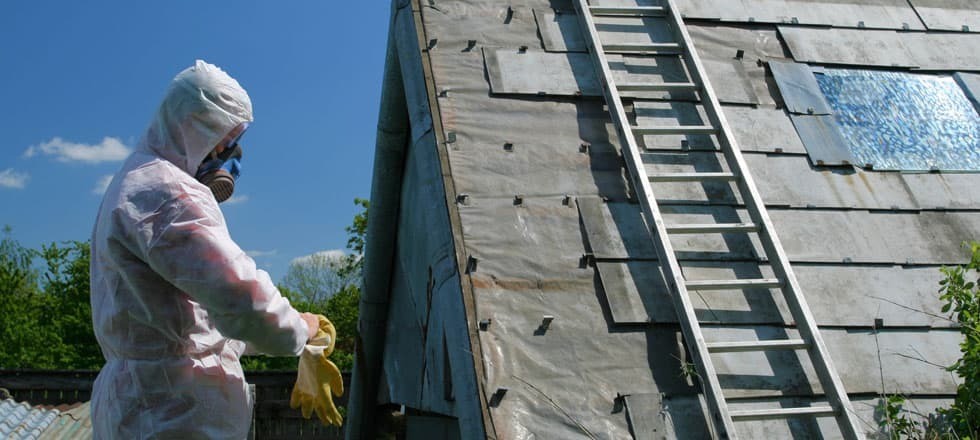
8. Asbestos
It’s well known that asbestos is bad for your health. But rather than affecting homeowners, most cases of asbestos–related illness that we hear about involve construction workers and tradespeople who are exposed to asbestos over the long term.
However, if your home was built before 2000, there might be asbestos somewhere.
If the asbestos is in good condition and it’s left alone, there may be no issue. But problems can arise if it’s exposed or disturbed, for example during renovations, as it releases dangerous fibres into the air which can be inhaled.
If your surveyor thinks there’s a risk of asbestos in your future home, you need to know where it is and whether it’s in good condition. You can get a specialist asbestos survey carried out via your local council, to set your mind at rest.
If you’re still asking ‘Do I need a property survey when buying a house?”, get in touch!
The benefits of a home, building or property survey are clear. It makes sense not to scrimp on a thorough home, property or building survey. It can be a total false economy – and leave you exposed to expenditure you haven’t accounted for!
Buying a property is probably going to be the most expensive purchase you will ever make. Therefore, leaving things to chance really isn't an option.
You can't put a price on peace of mind.
